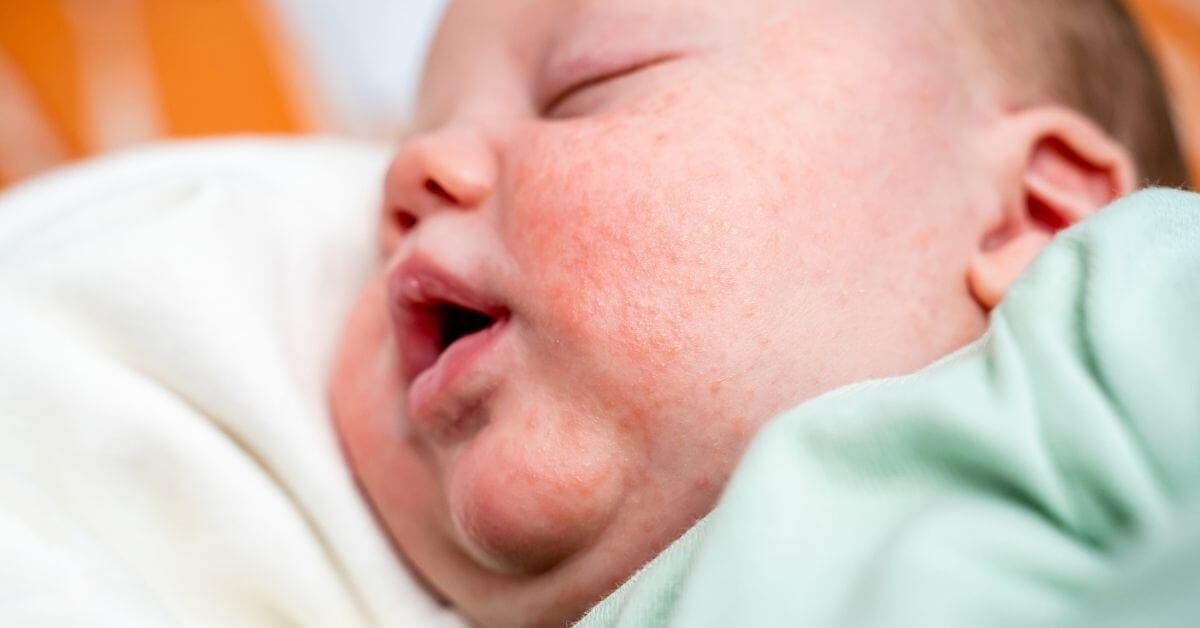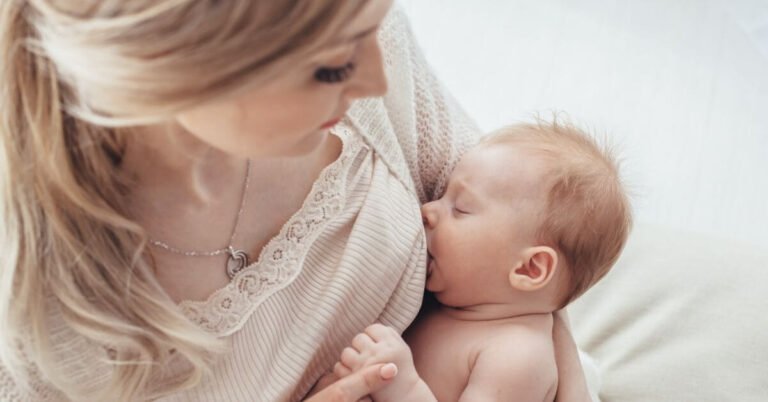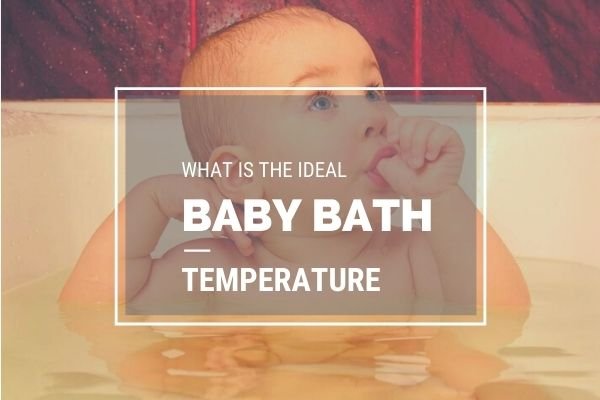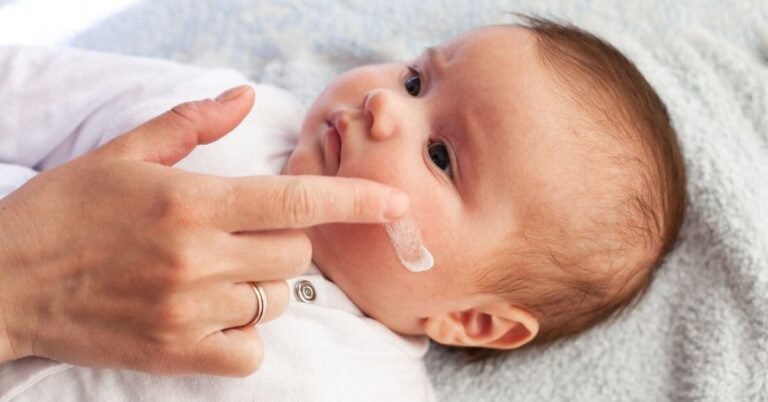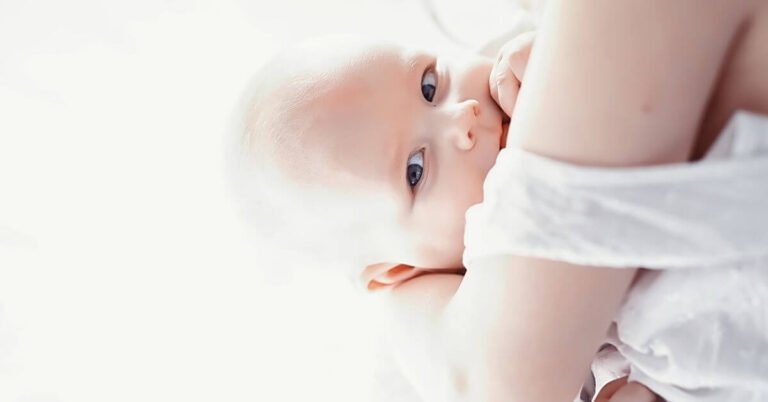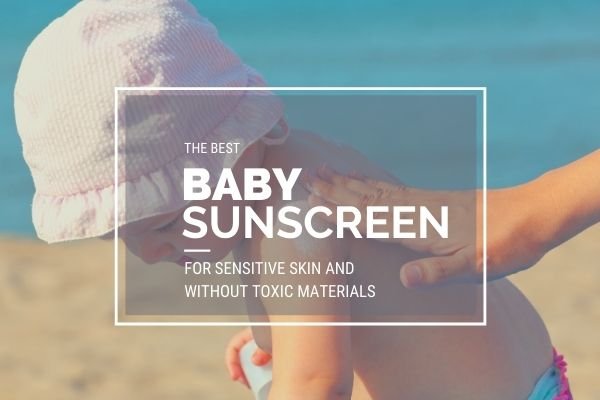What causes baby acne and how to get rid of it?
It’s horrible to find your baby’s skin suddenly covered with ugly acne pimples. And, of course, you want to know what causes baby acne in newborns and how long this will last.
When a mother gives birth, her hormones can pass through the placenta to her baby. These hormones are important for developing vital organs in the baby’s body. They also stimulate the sebaceous glands, which can cause baby acne.
Another theory that some doctors support is that a yeast named Malassezia causes baby acne. This type of yeast colonizes the infant’s skin, which may cause inflammation and trigger baby acne.
AFFILIATE DISCLAIMER: SOME OF THE LINKS IN THIS POST ARE AFFILIATE LINKS. IF YOU USE THESE LINKS TO BUY SOMETHING, WE MAY EARN A COMMISSION. SEE FULL DISCLAIMER.
Is baby acne normal?
Newborn acne is very common and roughly affects about 20% of all babies. Acne neonatorum or neonatal acne, which is its medical term, usually starts in the first 2 to 6 weeks of a baby’s life.
What does baby acne look like?
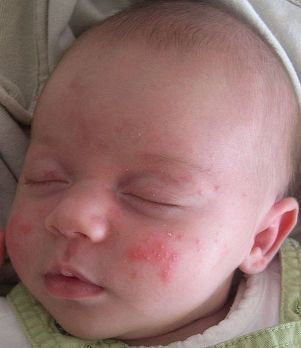
Just like acne in puberty, baby acne is noticeable as little pustules. Typically, they appear on the cheeks, forehead, ears, and chin, but some babies may also have them on the chest and back.
Does baby acne hurt or itch?
You may find it reassuring to know that baby acne is not harmful, and its appearance will probably bother you more than your baby. Normally, it does not itch or hurt. However, it may do so in rare cases when it becomes infected. Baby acne can easily be confused with other rashes like eczema and heat rash. So if it is red, dry, and itchy, you may want to see a dermatologist as it is highly possible it’s not baby acne.
When does baby acne clear up?
Many moms are desperately looking for ways how to cure newborn acne. This is usually not necessary. It is normal that a baby’s acne lasts a few weeks to a few months, and in most cases, it clears up on its own without any special treatment. When a baby reaches the age of 6 months, the size of the sebaceous glands reduces, and so does the sebum production. This is usually also the time when acne clears up spontaneously.
Does newborn acne leave scars?
Usually, baby acne (newborn) will disappear after a few months of home treatment and proper hygiene. But popping baby acne pimples is not a good idea as it may worsen matters and cause permanent scars.
What causes baby acne when breastfeeding?
Can breastfeeding make baby acne worse? Yes, you may occasionally see baby acne flare up when breastfeeding. Not only in the last stage of pregnancy but also while breastfeeding, mothers’ hormones are passed to the baby. If you are breastfeeding, watch your diet and avoid fatty foods. Add fresh fruit to your diet and drink plenty of water.
Bear in mind, how ugly the red pimples on your baby’s face may look, you cannot compare it to the tremendous benefits breastfeeding has to offer for your baby.
How to avoid flare-ups?
In short, everything that aggravates a baby’s delicate skin can cause a break out of acne pimples. Sometimes, there is irritation of the skin from harsh soaps, lotions, or creams or from a laundry detergent you use. Moreover, spit-up, baby formula, and saliva also appear to worsen baby acne.
What to do for baby acne?
Like most moms, you are probably eager to know how to care for baby’s skin and how to get rid of baby acne?
A word of caution: do not treat infant acne with medication for adult acne. This medication is far too harsh for your baby’s sensitive skin and will not be helpful at all. It’s more likely to cause irritation and aggravate the rash.
Natural baby acne treatment Step By Step
Here are a few tips to care for a baby’s acne skin. They will also help to prevent new breakouts.
- Wash baby’s skin once or twice a day with a mild soap for sensitive skin. When your baby has severe acne, a gentle moisturizing cleanser will keep the acne under control.
- Never rub the skin with a washcloth or towel. Use a soft towel to pat the skin dry gently.
- After feeding, carefully clean your baby’s face. Saliva and milk spit-up can aggravate baby acne.
- Avoid using creams and baby oil as they may clog the pores.
- Always wash baby’s clothes and bedding with a mild detergent.
- Ensure your baby does not get overheated, and stay away from direct sunlight, as this can worsen the baby’s acne.
Can you treat your baby’s acne with home remedies?
There are a lot of acne solutions for baby skin on the market containing vinegar. This makes some sense, as vinegar is good for absorbing excessive oil secretion and killing bacteria. Be careful using any of these home remedies with lemon, baking soda, or vinegar, as they are really unnecessary and will only dry out your baby’s skin.
Applying breast milk to the affected area is an ancient home remedy for treating baby acne. There is no scientific evidence to prove it. Still, breast milk is rich in antibodies and has antimicrobial and anti-inflammatory properties, so this may work.
Best lotions for baby acne-prone skin
[amazon box=”B00JF3RYPM,B01A59VMSO,B07GFCKS9P” star_rating=”none” reviews=”none”]
What causes baby acne at 5 months?
When a baby develops acne after the first 6 weeks of life, they name it infantile acne or infantile acne vulgaris. Infantile acne is similar to newborn acne, but there are some notable differences.
- First, infantile acne is likely to occur when your baby is between 3 and 6 months of age.
- Second, infantile acne presents itself in multiple forms, like whiteheads, blackheads, pustules, nodules, and cysts.
- Third, it may require more vigorous treatment than baby acne because there is a risk of scarring.
When you are uncertain, it is sometimes better to verify your baby’s skin condition with a dermatologist. He will check if it is indeed newborn, infantile acne, or another skin rash.
What to do when the acne is really bad?
Rarely do you see that baby acne becomes inflamed and forms pimples with yellow pus. If so, you need to keep your baby’s nails short so he/she cannot scratch the acne and cause an infection. Another way is to buy little mittens for newborns to prevent them from scratching.
You must consult your doctor when baby acne becomes infected and painful. He will decide if there is a need for treatment with topical or oral antibiotics.
As a rule, severe infantile acne is treated with topical cleansing agents and antibiotics (prescribed by a dermatologist) to ensure the child will not have permanent scars.
What smart tips do you have for new moms for treating baby acne? Any home remedies you would like to recommend? We love to hear your tips in the comments below.

